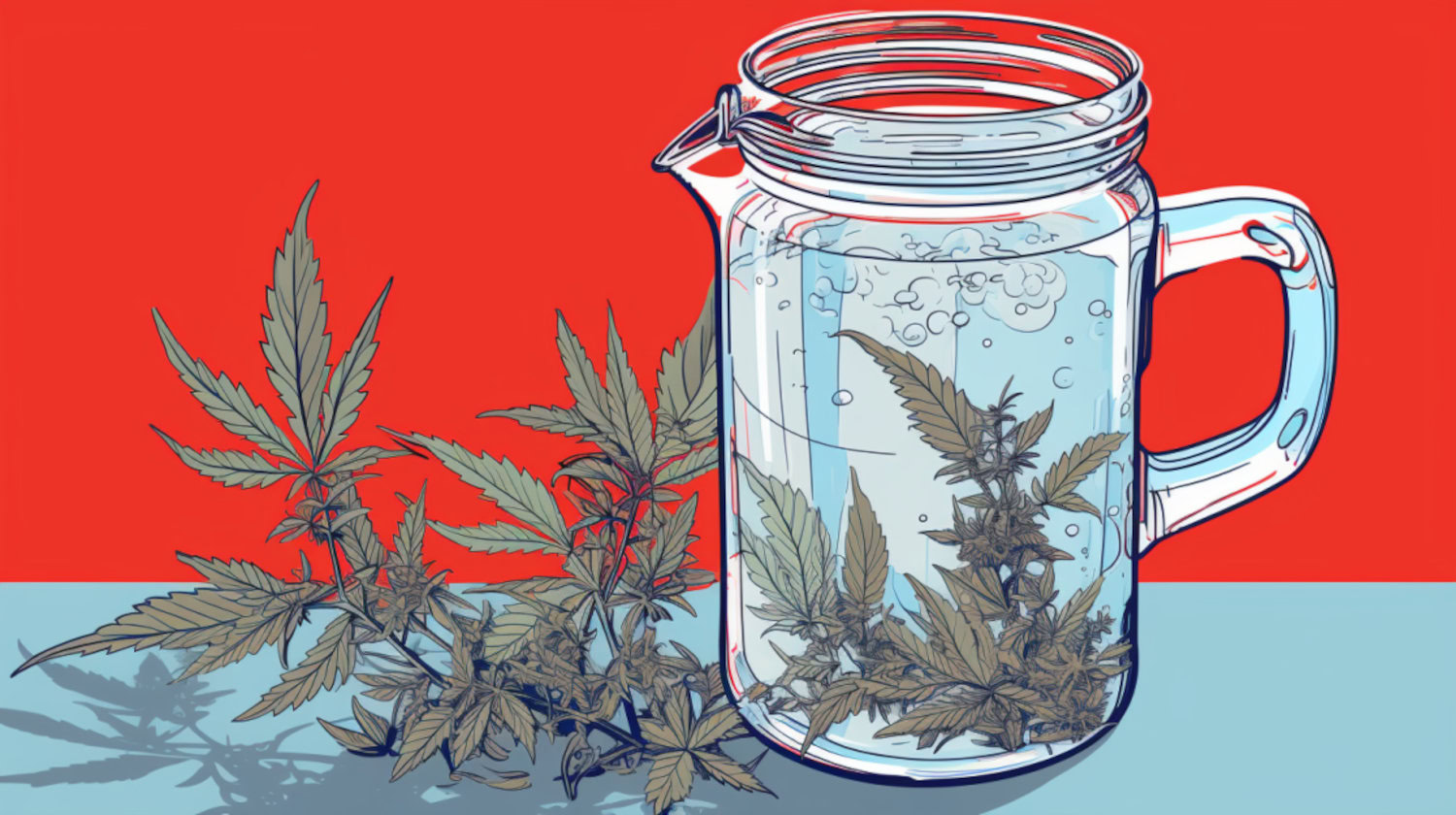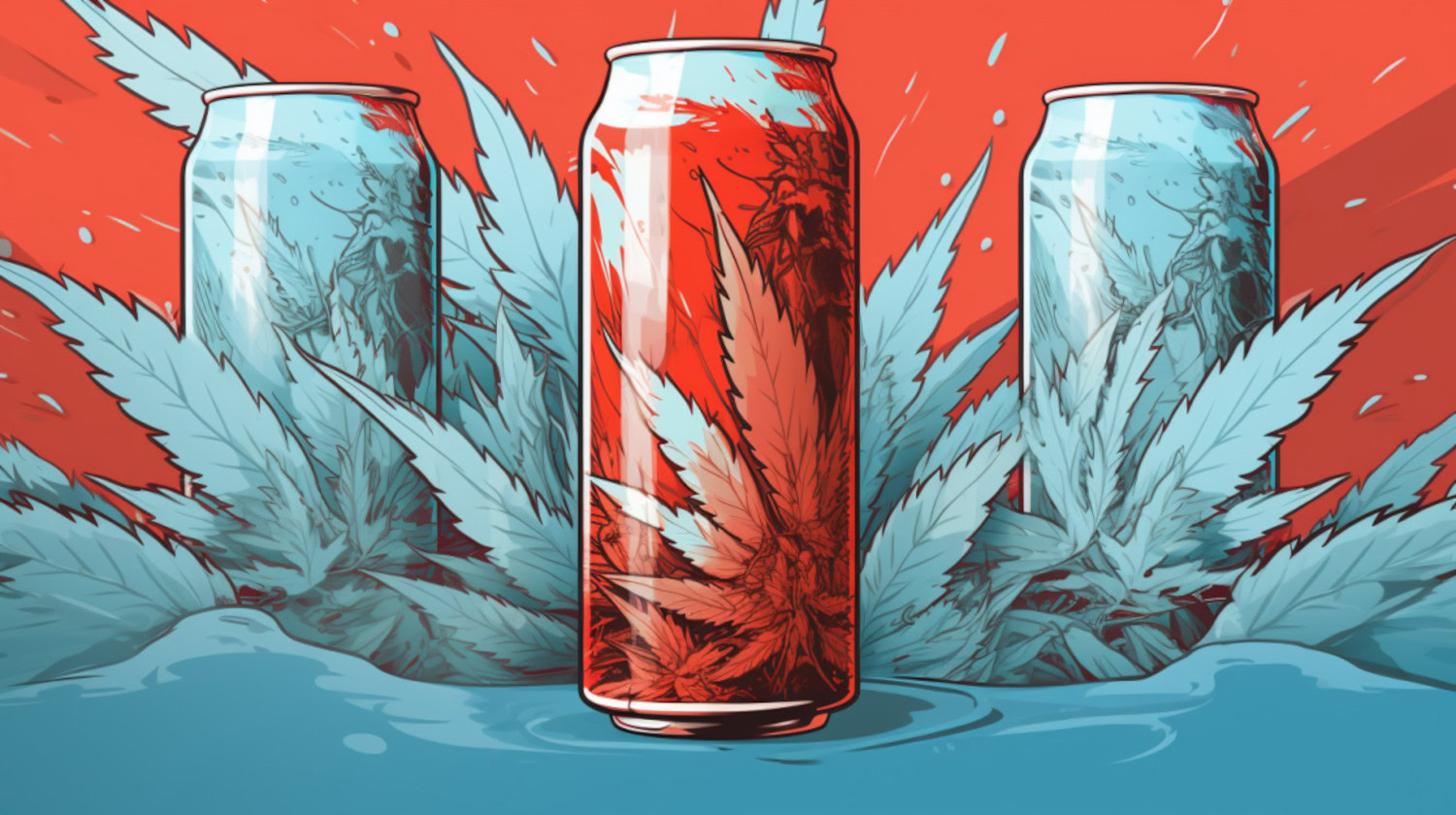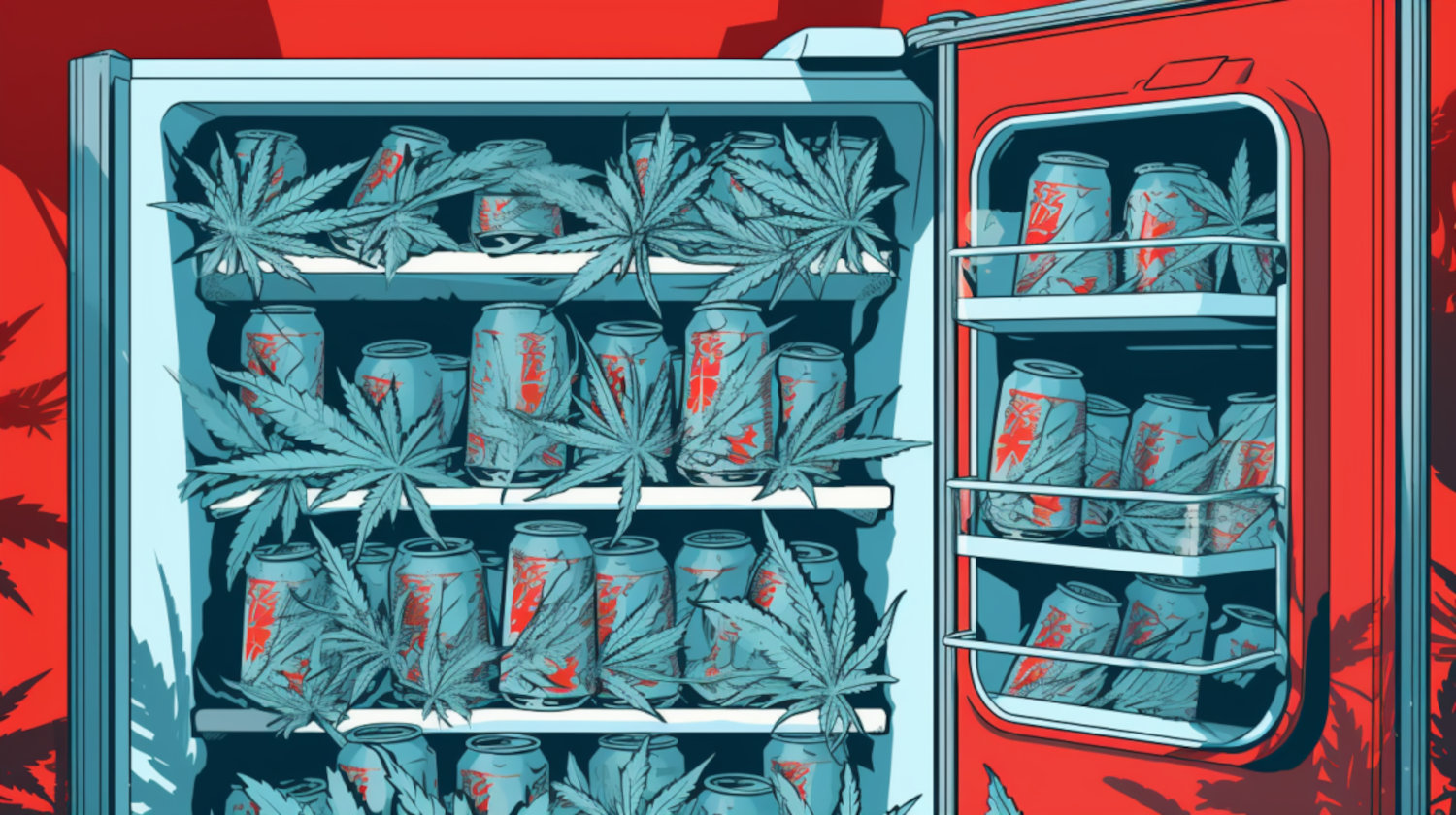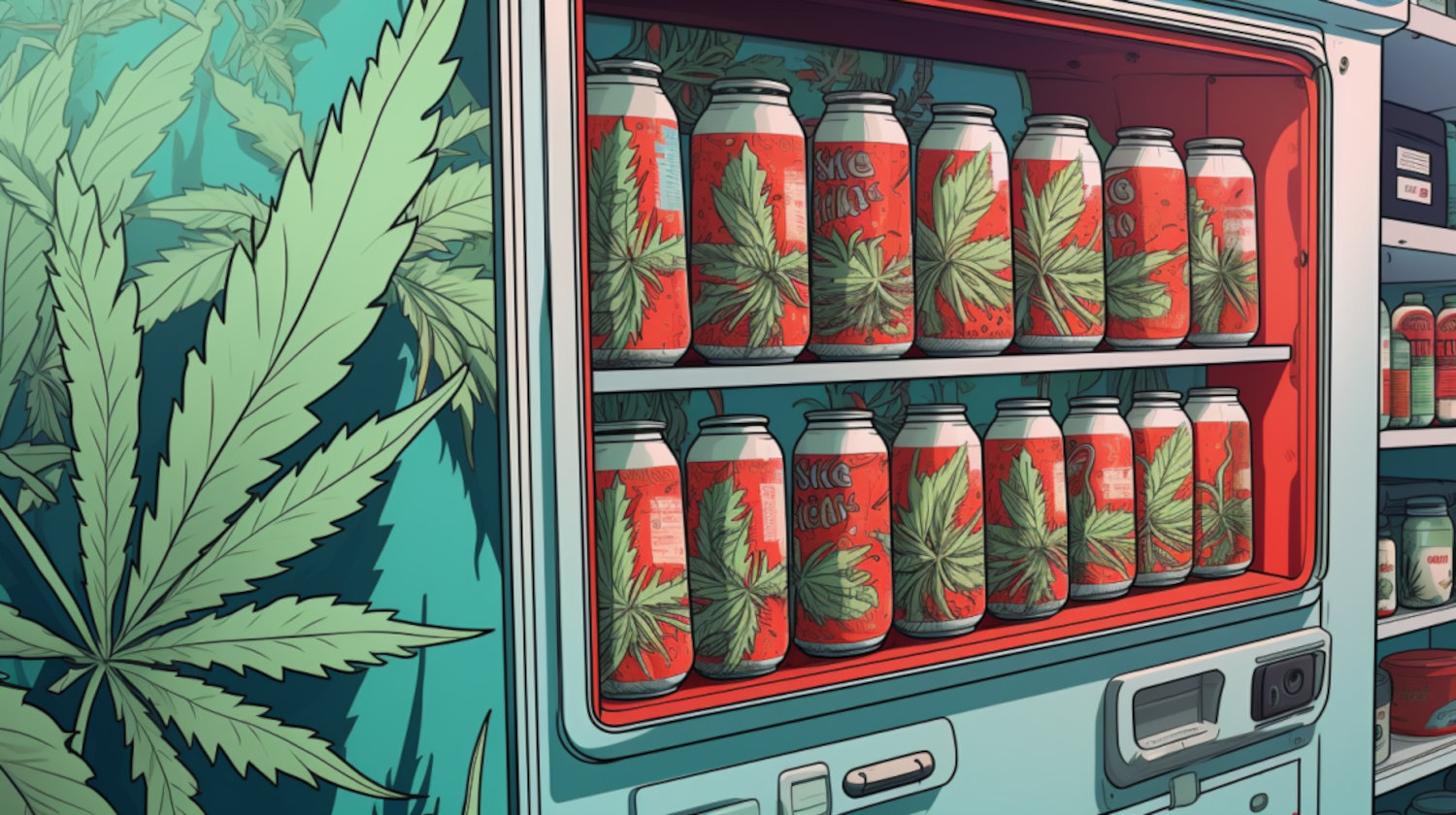Key Takeaways
- Weed water can be made a variety of ways, like with tinctures, powders, syrups, and even decarbed flower.
- Commercial products use nanoemulsion break up and evenly distribute THC in water and other beverages.
- Like most edibles, it’s easy to overdo it with weed water, so it’s best to start with a low dose and go slowly.
Weed-infused edibles are a surging market with few signs of stopping soon. The global edibles market is expected to increase exponentially over the next several years. According to market analysis, edibles should increase by almost 14% annually through 2030.
One of the more intriguing options to hit the scene in recent years is THC-infused water. Often known as weed water, the beverage infuses THC into bottled water, allowing consumers to sip and dose as they see fit.
What is Weed Water?
When we thought of edibles for several decades, most people's minds went to a brownie, a cookie, or maybe some infused butter. Regarding beverages, some infused teas or coffees have popped up along the way. But for the most part, edibles covered food and little to no drinks.1
Thanks to innovative infusion technology, cannabis beverages have been introduced in the edible space. Today, commercial and DIY beverages can be made through various infusion techniques.
- THC Tinctures: Bottled liquid cannabis extract added to beverages using a dropper.
- THC-Infused Oils: Remember that oil and water don't mix, so oil should be mixed with fat-based drinks like milk.
- THC-Infused Sugar or Syrups: THC-infused sugar or syrups can help sweeten and dose coffee, tea, or cocktails.
- Decarboxylated Cannabis: THC becomes activated through a heating process called decarboxylation. Once decarbed, someone could add it to hot water to make a cannabis tea. However, this really won't taste great, and probably won't be as effective as other methods.
- THC Powder: Some companies produce water-soluble THC powder that can be mixed into any beverage.
- Commercial THC Beverages: Some companies now make commercial-grade drinks, including several soda, juice, and water brands. These drinks are made using various patented or proprietary infusion methods. One of the most popular methods is nanoemulsion, which extracts cannabis compounds into microscopic water-soluble droplets.
Weed-infused water is made using a nanoemulsion process, which allows the cannabis extract oil to be mixed once at a microscopic level. Currently, there is no way to infuse a water-based beverage directly, other than if the company uses a nano-emulsified THC powder. The same rules apply to CBD or any other popular cannabinoid-based beverage.
Once infused, THC water may contain additional flavorings or may be served as plain flavored water. While the process does reduce the flavor of the cannabis, some beverages may still possess a weedy taste. However, some items, particularly drinks made with THC isolate powder, may not contain any cannabis notes, as the aroma is entirely removed during the extraction process.
Can You Get High from THC Water?
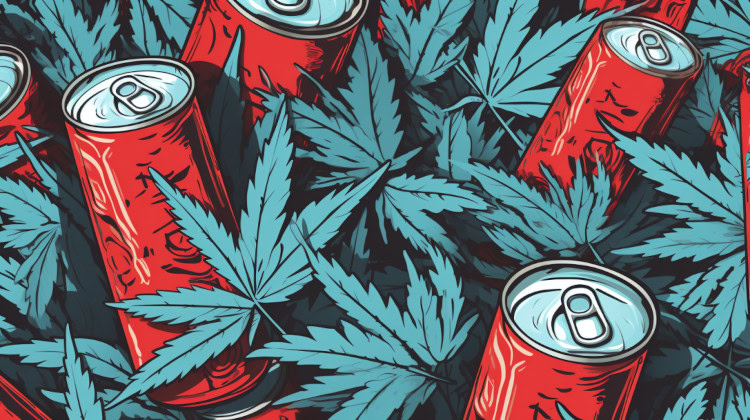
Yes, that is the intent of THC-infused water, which contains the intoxicating effects we commonly call a high. The intensity of these effects depends on several factors, including the dosage in each can and how much you consume.
THC-infused waters are a type of edible. That means the effects kick in slower than they would with smoked or vaped products, and often last longer once they arrive. Edibles are metabolized in the liver first, typically taking 30 to 120 minutes before effects begin.1
Some newer nanoemulsified products have cut the onset times in some products down to 15 minutes. Like with any other edible, the effects of THC water can last anywhere between six and eight hours. However, depending on the dosage and plant compounds consumed, those effects could become more or less pronounced.
THC water strength varies depending on the product and potentially the state regulations. In most states, edibles are regulated at 10mg of THC per serving, with packages usually capped at 100mg. Most popular THC water bottles and cans follow similar rules. Some states allow for higher doses of medical edibles, which could see a can reaching 200mg or higher. Some microdosed offerings may come in lower 2.5mg or 5mg doses.
Some beverages might contain a ratioed dose of CBD or other cannabinoids, which can affect the effects felt.
Pros of THC-Infused Water
In addition to keeping you hydrated, THC water comes with several other advantages, including:
- Options: Available in still or sparkling, flavored or plain, and varied doses, consumers have a wide range of weed waters.
- Discreet: Without any smoke, vapor, or noises to accompany it, THC water is a quiet, subtle way to dose without anyone knowing the wiser.
- Controlled Dose: Dosages are stated on each bottle, allowing you to know the maximum dosage and take a minor hit by sipping just some of the drink.
Potential Risks and Side Effects of THC Water
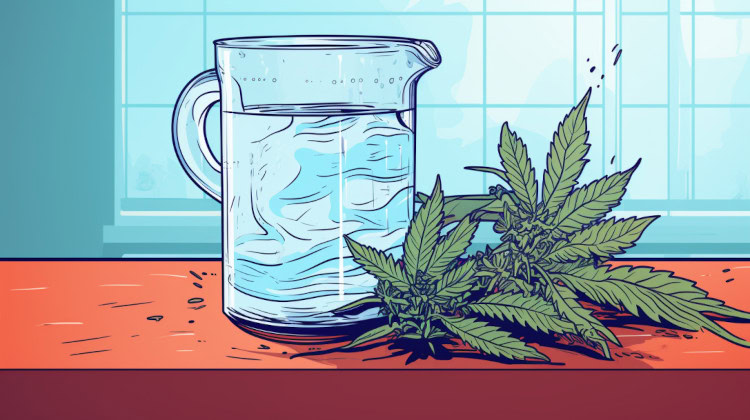
Your life isn't at risk, but consuming weed water can come with some unwanted setbacks you should be aware of. They include:
- Delayed Onset: Consumers can sometimes become impatient and consume additional doses, leading to adverse effects.
- Over-intoxication: Consuming excess cannabis can lead to unwanted outcomes, including nausea, anxiety, increased heart rate, and more.2 This is commonly known as greening out.
- Health and Allergy Risks: Edibles may contain ingredients that could affect your allergies, such as dairy, eggs, nuts, and other items.
- Accidental Ingestion: Edibles can be eaten accidentally, with someone thinking it was a non-medicated food or drink.
Can You Take THC Water with Weed?
You can take THC water and mix it with other forms of weed. Keep in mind that doing so increases the effects felt since you are combining two or more doses of cannabis in one sitting. These effects could be felt substantially more if you're consuming two edibles or mixing an edible like weed water with other high-potency methods, such as a dab.
You aren't just consuming THC either, that is, unless you're drinking an isolate. But in most cases, cannabis doses contain multiple cannabis compounds. Mixing two or more sources, like weed water and a joint, for example, means mixing several plant profiles in your system at once. This could lead to a positive or negative outcome depending on the combined effect they create.
Tips When Drinking THC Water
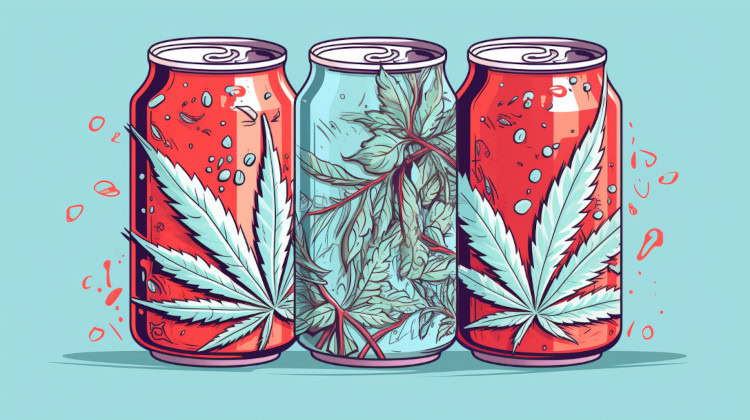
You're most likely to have a good time with THC-infused water as long as you follow some edible best practices. They include:
- Be patient; overconsumption often happens because the effects didn’t kick in before eating/drinking more.
- Avoid mixing alcohol or other substances with cannabis.
- Don't operate heavy machinery, like a car, after consuming.
If you are worried about the effects or how much you can handle, consider using the start low, go slow method. This approach suggests starting with the lowest dose possible, like one sip of a THC-infused beverage, and waiting an hour to see how you feel.3
References
- Barrus DG, Capogrossi KL, Cates SC, et al. Tasty THC: Promises and Challenges of Cannabis Edibles. Methods Rep RTI Press. 2016;2016:10.3768/rtipress.2016.op.0035.1611. doi:10.3768/rtipress.2016.op.0035.1611 ↩︎
- urner AR, Spurling BC, Agrawal S. Marijuana Toxicity. In: StatPearls [Internet]. StatPearls Publishing; 2023. https://www.ncbi.nlm.nih.gov/books/NBK430823/ ↩︎
- MacCallum CA, Russo EB. Practical considerations in medical cannabis administration and dosing. European Journal of Internal Medicine. 2018;49(49):12-19. doi:https://doi.org/10.1016/j.ejim.2018.01.004 ↩︎
The information in this article and any included images or charts are for educational purposes only. This information is neither a substitute for, nor does it replace, professional legal advice or medical advice, diagnosis, or treatment. If you have any concerns or questions about laws, regulations, or your health, you should always consult with an attorney, physician or other licensed professional.

